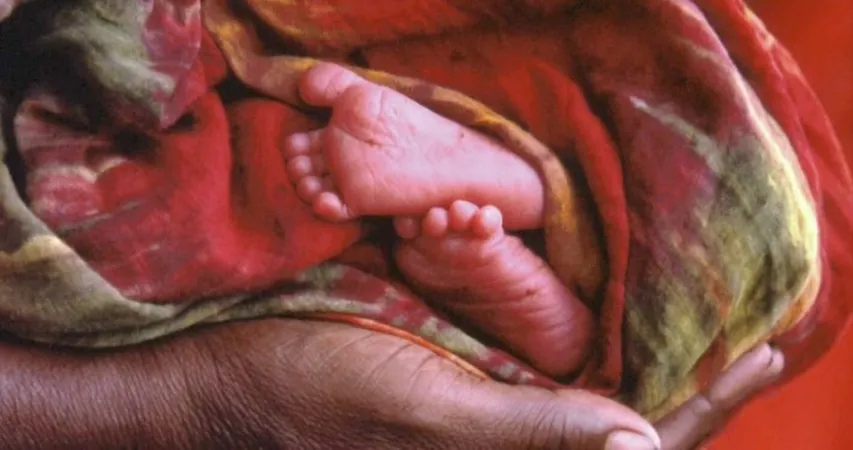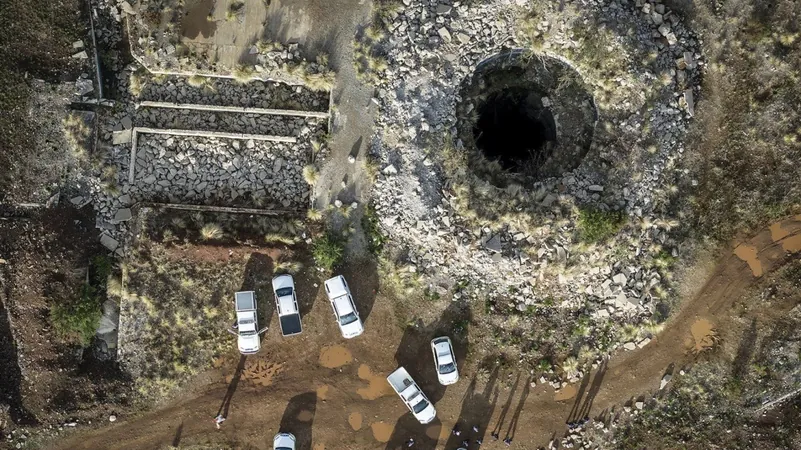
A Game-Changer for Infant Respiratory Health: New Vaccination Efforts Against RSV
2024-11-12
Author: Jacob
A Game-Changer for Infant Respiratory Health: New Vaccination Efforts Against RSV
In a groundbreaking decision, the World Health Organization (WHO) Strategic Advisory Group of Experts (SAGE) has recommended that every country adopt maternal vaccination and/or long-acting monoclonal antibodies (mAbs) to prevent severe respiratory syncytial virus (RSV) disease in young infants. This recommendation, made in September 2024, represents a significant leap forward in the fight against one of the leading causes of severe respiratory illness in children worldwide.
Currently, RSV is a pervasive virus, with nearly every child contracting it by the age of two. While many cases are mild—similar to a common cold—infants are particularly vulnerable and can experience life-threatening complications from RSV. The virus is responsible for more childhood hospitalizations than any other pathogen, annually leading to thousands of deaths and overwhelming health systems across the globe. RSV typically presents a seasonal risk in temperate regions but can be a year-round threat in tropical and subtropical areas.
The urgency for these new interventions is amplified by the data showcasing that nearly half of all RSV-related deaths occur in infants under six months old, emphasizing the need for timely and effective protection during this critical period.
Innovative Protection Strategies
Both the maternal vaccine and monoclonal antibodies are designed to confer immediate protection to vulnerable infants by inducing passive immunity. This means that instead of the infant's immune system having to develop its own antibodies, the necessary antibodies are transferred directly from the mother or provided through treatment.
The newly developed maternal vaccine is administered during pregnancy, specifically during the third trimester, to maximize antibody transfer to the baby. This approach mirrors existing maternal vaccines, such as those for tetanus, which have proven highly effective in safeguarding newborn health.
Raising Awareness and Overcoming Barriers
Despite the tremendous burden of RSV, it has often been overlooked in public health discussions. To combat this, WHO and PATH have introduced the RSV Roadshow communications toolkit, designed to educate stakeholders at global and local levels about RSV, its implications, and the potential of new immunization strategies. This toolkit includes a variety of resources to help in disseminating vital information.
Moreover, PATH is leading extensive health economics research across multiple countries, including Argentina, Ghana, and Vietnam, to assess the financial viability and delivery logistics of the new interventions. This will provide critical insights for health organizations and countries as they consider integrating maternal vaccines into their public health frameworks.
Transforming the Future for Young Lives
As the world mobilizes to respond to this health crisis, there is an unprecedented opportunity to shift the narrative surrounding RSV. With implementation already progressing in wealthier nations, it is imperative to accelerate the introduction of these interventions in low- and middle-income countries, ensuring all children have access to these lifesaving measures.
This movement marks a turning point in pediatric health, with hopes high that we can now effectively confront and mitigate the dangers posed by RSV. As we stand on the brink of change, it’s crucial to share this vital information. Don’t let the chance to protect our youngest and most vulnerable pass us by!









 Brasil (PT)
Brasil (PT)
 Canada (EN)
Canada (EN)
 Chile (ES)
Chile (ES)
 España (ES)
España (ES)
 France (FR)
France (FR)
 Hong Kong (EN)
Hong Kong (EN)
 Italia (IT)
Italia (IT)
 日本 (JA)
日本 (JA)
 Magyarország (HU)
Magyarország (HU)
 Norge (NO)
Norge (NO)
 Polska (PL)
Polska (PL)
 Schweiz (DE)
Schweiz (DE)
 Singapore (EN)
Singapore (EN)
 Sverige (SV)
Sverige (SV)
 Suomi (FI)
Suomi (FI)
 Türkiye (TR)
Türkiye (TR)